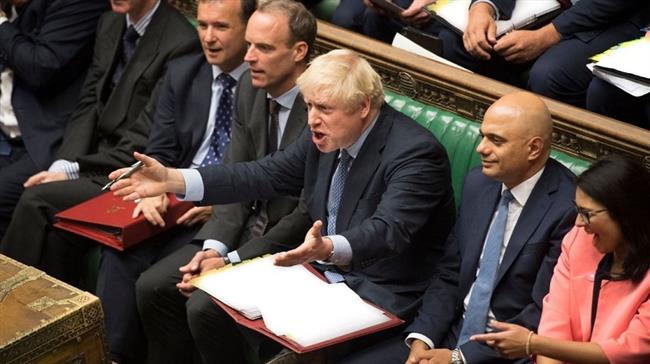Parliament to scrutinize Boris Johnson’s new Brexit deal
The UK premiere and EU officials say they have secured a Brexit deal – who are the three groups PM Boris Johnson must now win over in the House?
Following Thursday’s announcement that both negotiating parties have agreed on a Brexit deal, UK political figures started to express their opposition to the proposals.
Boris Johnson is scheduled to make a statement to MPs on Saturday about the new Brexit agreement. Only after that statement, MPs will commence the debate over prospects of the new proposal. The debate is scheduled to last 90 minutes, at the end of which a vote will be held to either accept or reject the deal.
Mr. Johnson has about 259 votes in the bag, and needs another 60-odd to win him favour. That leaves him with a possible pool of approximately 71 votes. The prime minister faces an uphill battle to win over key groups – the Brexiteers, the Remain Alliance MPs, and the Democratic Unionist Party (DUP).
After news of a deal broke out on Thursday, many hardline Brexiteers stated they are prepared to resign if Mr. Johnson delivers a deal that does not mean leaving the European Union.
They said that both Great Britain and Northern Ireland must leave the customs union and the single market to win their support.
However, under Mr. Johnson’s deal, Northern Ireland would stay aligned to the EU single market, while keeping it a part of the UK's customs territory. The Northern Ireland Assembly would be given the right to vote every four years if it chooses to stay in the scheme.
Mr. Johnson must also try and convince members of the so-called Remain Alliance MPs, who are made up of broadly moderate Labour Brexiteers and some former Tory MPs.
The bulk of these MPs may back a deal with the EU as long as it means that the UK does not go through the no-deal Brexit route.
The third group includes the 10 DUP MPs, who could persuade Tory hardliners against Mr. Johnson’s plan. As it stands, the DUP expressed doubt on the success of the proposal.
Following the announcement of a deal, the DUP said it would not vote for the deal, as the proposals were “not beneficial to the economic wellbeing of Northern Ireland” and undermined the integrity of the union.
President of the European Commission, Jean-Claude Juncker, said there would be no extension granted for further Brexit talks. It is a do-or-die scenario for the UK Parliament to either accept or reject the deal.
Can Boris Johnson hold Conservative rebels to a minimum and win the backing of the Northern Ireland party and about a dozen Labour lawmakers?
The former Prime Minister, Theresa May, was voted down three times in the Commons. Mr. Johnson must persuade at least 29 lawmakers who voted against Mrs. May’s deal to back his deal—while not losing any of those who supported Mrs. May.
Tehran Stock Exchange index hits historic high
3 civilians injured by Israeli fire during incursion into Syria’s Quneitra
Iran’s wheat imports at $424 mln in Apr-Oct: IRICA
Most captives killed by Israeli strikes in Gaza, says former commander
Gaza docudrama 'The Voice of Hind Rajab' nominated for Golden Globe
‘Beyond absurd’: Israel extends ban on foreign media in Gaza
Hamas rules out 2nd phase of Gaza ceasefire while Israeli violations continue
VIDEO | Press TV's news headlines










 This makes it easy to access the Press TV website
This makes it easy to access the Press TV website